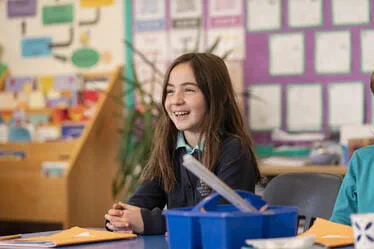Art in lower school education serves as more than just a creative outlet—it is a powerful tool that shapes children’s cognitive, emotional, and social development. For parents, understanding the role of art in education can illuminate how activities like drawing, painting, and sculpting lay the foundation for critical life skills. By engaging in art, children learn to think creatively, solve problems, and express themselves confidently. In today’s rapidly changing world, these are essential skills that empower students to make meaningful connections with the world around them. Art not only cultivates creativity but also fosters a holistic approach to learning that benefits children both inside and outside the classroom.
Art is a vital subject in the Lower School at the British International School of Boston. It is a Segway for children to see and make connections with the world around them. It provides a unique platform for children to develop deeper content and critical thinking skills positively and inquisitively.
Engaging in Art activities contributes to and strengthens children’s development in a variety of areas such as:
- Encouraging Creativity - Art allows children to explore their imagination, think outside the box, and express their individuality. It fosters creative thinking, which is important in problem-solving.
- Develop Fine Motor Skills - Activities like drawing, painting, cutting and sculpting help children develop hand-eye coordination, precision, and fine motor skills.
- Boosts Confidence - Completing an art project gives children a sense of achievement. It builds their confidence and encourages them to take risks in other areas of learning.
- Enhances Emotional Expression - Art provides a safe space for children to express their emotions and feelings, which is particularly helpful for those who may struggle with verbal communication.
- Improves Focus and Patience -Art projects often require children to stay focused for extended periods and exercise patience, as they work through different stages of creation.
- Strengthens Critical Thinking and Problem-Solving In creating art, children make decisions about color, form, and composition, which hones their critical thinking and problem-solving abilities.
- Promotes Cultural Awareness and International Mindedness. Through art, children can learn about different cultures and perspectives, helping to foster understanding and empathy for others.
- Supports Collaboration and Inclusion - Group art projects teach children to work together, share ideas, and learn from one another, promoting teamwork and social skills. At Nord Anglia the Global Campus provides a safe and tangible platform for our students to make links, take part in competitions, learn new skills, and share ideas with students at our sister schools.
- Enhances Communication Skills - Discussing their artwork helps children articulate their reasoning, thoughts, ideas, and emotions, improving their verbal and visual communication skills.
- Facilitating learning opportunities for our students to engage, experience, and enhance the development areas above plays a firm role in the Primary School. Ultimately art, not only nurtures artistic talent, but also supports cognitive, emotional, and social development, making it a crucial part of a well-rounded international education curriculum experience.
Incorporating art into the lower school curriculum is essential for nurturing well-rounded learners. At Nord Anglia, platforms like the Global Campus enable our students to connect and collaborate with peers worldwide, enriching their understanding of diverse cultures and perspectives through art. As parents, supporting your child’s creative journey is an investment in their emotional intelligence, critical thinking, and global awareness. By embracing the power of art, we help children develop into confident, empathetic, and thoughtful individuals, prepared to succeed in school and life.








